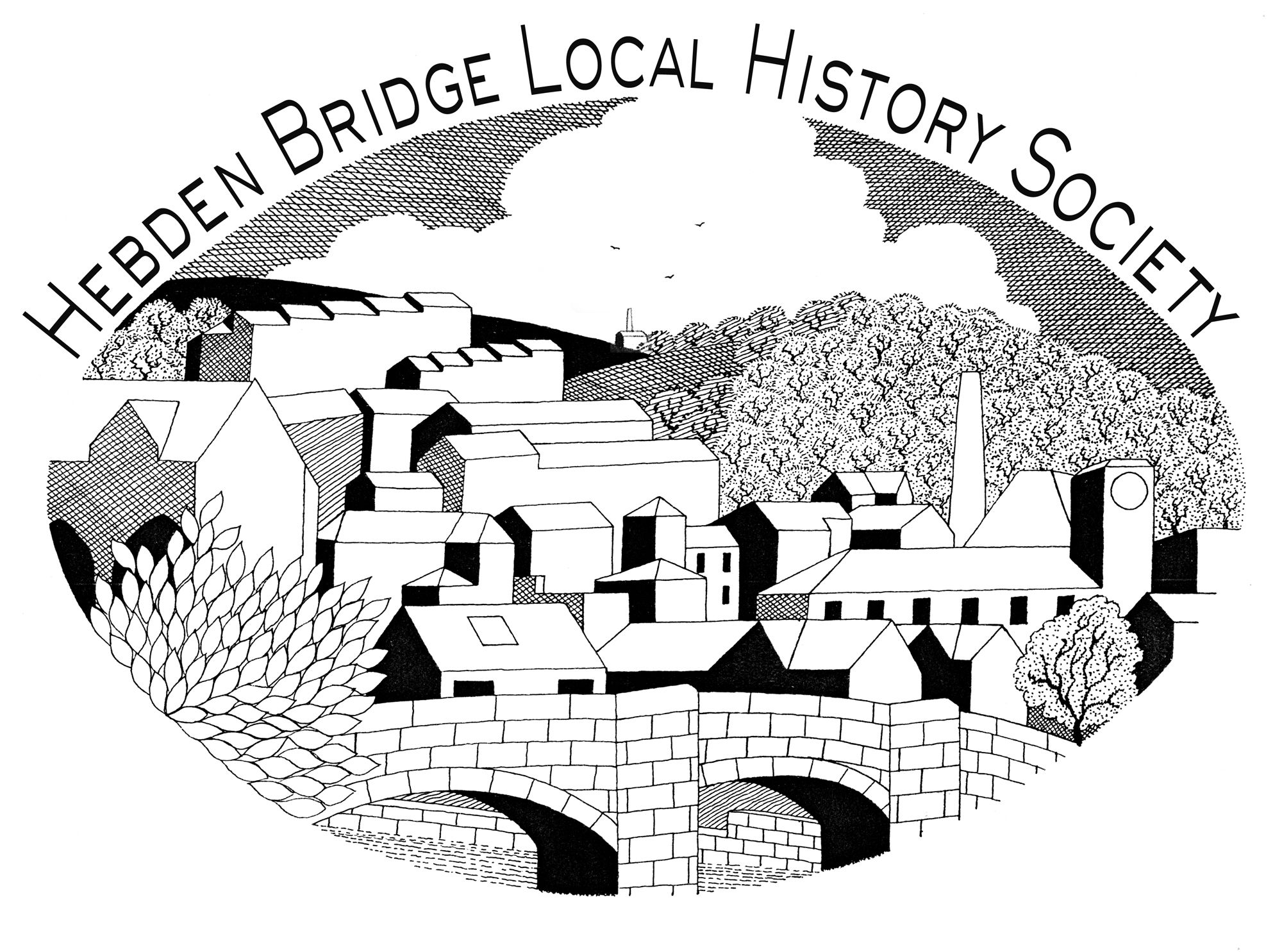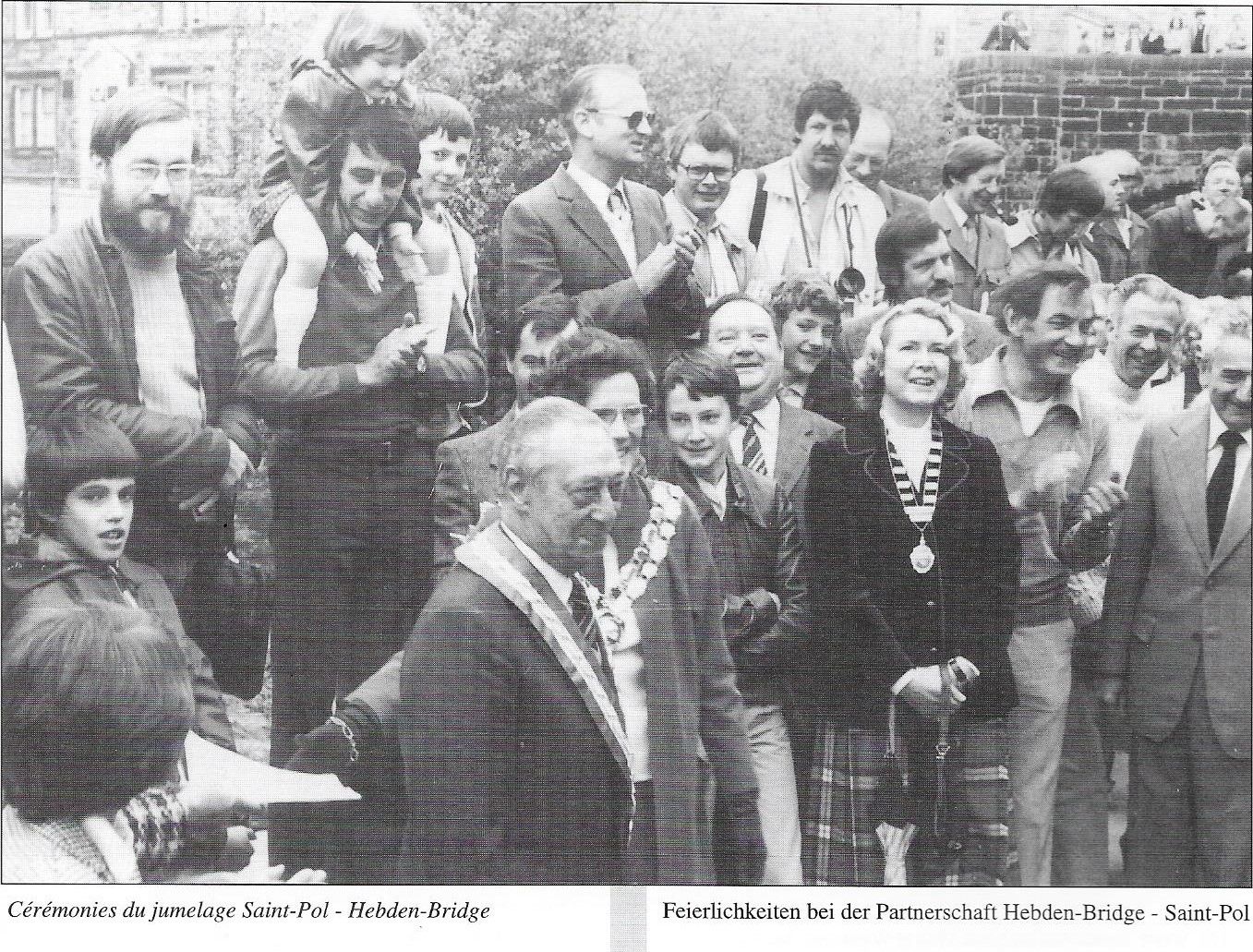After the end of the Second World War, a strong feeling of ‘never again’ led to the beginning of a remarkable grassroots movement to foster friendship and understanding. Communities in towns across France and Germany formally declared themselves twin towns and took turns to welcome visitors to their homes and to explore the culture and environment of their twins. Jane Jackson, Secretary of the Hebden Bridge Twinning Society, told members of Hebden Bridge Local History Society how in 1965 Saint-Pol-sur-Ternoise and Warstein were twinned, and how later in 1979 Hebden Royd twinned with St Pol and then with Warstein in 1995.
The idea of twinning is quite simple: in turn, people in one town host visitors in their own homes, and there are organised trips and more spontaneous entertainments. Twin towns often have something in common in their geography or character, but there is a structural difference between Hebden Royd and its French and German twins. The organisation of the events in Britain is the function of local volunteers, whereas in St Pol and Warstein the elected local mayor takes charge, and has both political power and a financial budget. However, over the years the Mayors and Council of Hebden Royd have been supportive and enthusiastic. Twinning visits involve some ceremonial speech-making, gift exchanges and signing of charters, but the photos show an awful lot of laughter, fun and food as well.
Memorable events include performances by the Hebden Bridge Junior Band and an ambitious children’s football tournament in Warstein, when the Hebden Bridge team triumphed and brought home the Cup. Music is often at the heart of the celebrations, though Jane warned that an implacable fascination with the Beatles meant that bands from Hebden Bridge might have to adjust their set-list to satisfy their audiences. Parades and fancy dress often feature in Warstein, and national stereotypes can be successfully met by donning cricket whites and waving bats. In Hebden Bridge the cinema is a much-loved venue, and no visit is complete without a gathering by the old bridge.
Walking in the countryside leads naturally to a shared interest in the environment, especially forest and nature conservation. On one occasion at a meeting in Mytholmroyd exploring Slow the Flow’s flood alleviation work, the flood warnings sounded and the hall evacuated. Visitors got a first hand demonstration of what was involved in cleaning up after heavy rain.
During the Covid lockdowns the internet came into its own, with casual chats, discussions and on-line quizzes keeping the links alive. The themes of war and peace that inspired the movement still have relevance, and schools have worked together capturing the memories of those who recall the early post war years. There are certainly opportunities to encourage younger people to work across borders on issues that concern them, and to listen to ideas from other cultures. Sports and culture are areas where experiences and enjoyment can be shared. The Twinning groups are determined to keep their work relevant and to sow the seeds of many more lasting friendships with families in the twin towns.


